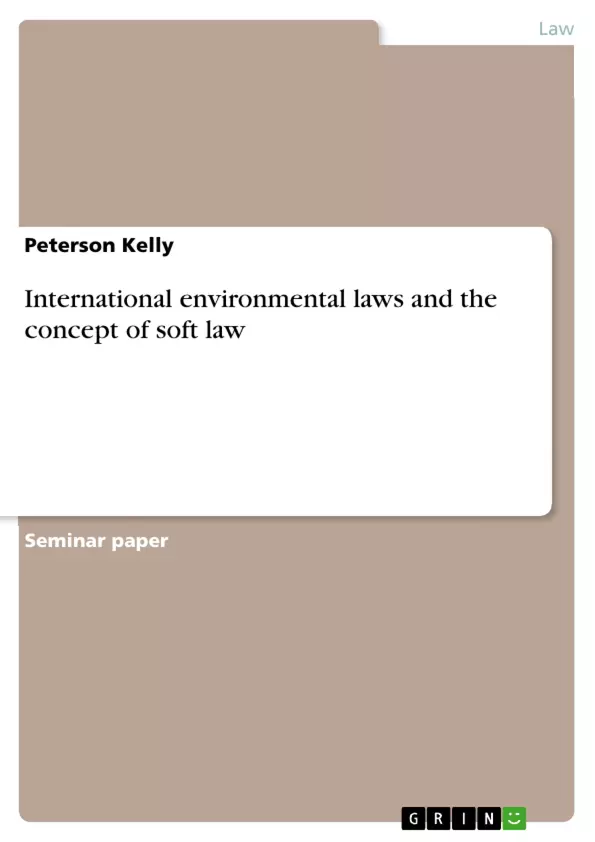Soft law regards to international norms that are deliberately non-binding in character, but are of great legal relevance. This has unique policies that lie between law and politics. Noticeable examples include resolutions by international organizations and global plans of actions of conduct. Soft laws operates under a different model from “hard law” that is associated with legally binding obligations. Furthermore, soft laws are characterized with less degrees of precision when compared with hard laws. Some scholars argue that soft law is ambiguous because its legal effects and its implication is often difficult to identify. Soft law mainly constitutes various part of the modern law-making process. International environmental regulations indicate a successful application of the soft law. Scholars believe that soft law outweighs the classical and familiar legal categories of law that form a platform of international regulations. Soft law is associated with various concerns; however, it has strategic mechanisms for imposing its proposals. The law is primarily structural in nature because it includes the existence and development of an organized network of permanent institutions at international and regional levels. Rio+20 conference provides a practical example of emphasize of soft law in the international environmental regulations. Studies indicate that the Rio+20 seminar on environmental sustainability did not create any successful agreements or commitments; however, it provided a global platform for discussing demanding issues in the effort to secure international sustainable development.
Inhaltsverzeichnis (Table of Contents)
- Introduction
- Preference of the soft law instruments in international environmental regulations
- The Rio+20 and the establishment of International environmental laws
- The Rio+20 provisions in relation to Soft law
Zielsetzung und Themenschwerpunkte (Objectives and Key Themes)
This text explores the concept of soft law in international environmental regulations, focusing specifically on the Rio+20 conference and its implications for global environmental governance. It investigates how soft law instruments, like resolutions and recommendations, have gained prominence in environmental law, contrasting them with traditional "hard law" frameworks.
- The role of soft law in international environmental regulations
- The influence of Rio+20 on the development of global environmental law
- The advantages and disadvantages of soft law instruments
- The relationship between soft law and hard law in environmental governance
- The changing dynamics of international environmental law in a globalized world
Zusammenfassung der Kapitel (Chapter Summaries)
- Introduction: The chapter defines soft law as non-binding international norms with significant legal relevance and explores its unique position between law and politics. It contrasts soft law with "hard law" and highlights its characteristics, including ambiguity and a less formal structure.
- Preference of the soft law instruments in international environmental regulations: This chapter examines the reasons behind the growing preference for soft law instruments in international environmental regulations. It explores the role of the UN family of institutions, the diversification of the global community, and the rapid evolution of the global economy in driving this shift.
- The Rio+20 and the establishment of International environmental laws: This chapter focuses on the Rio+20 conference, highlighting its objectives, proposals, and strategies. It discusses the conference's emphasis on sustainable development, green economy, and strengthening the United Nations Environment Program (UNEP). The chapter also examines the role of soft law principles in shaping the conference's recommendations and strategies.
Schlüsselwörter (Keywords)
This text focuses on the key concepts of soft law, international environmental regulations, Rio+20 conference, sustainable development, green economy, UN family of institutions, non-binding norms, and the contrasting principles of hard law.
- Quote paper
- Peterson Kelly (Author), 2012, International environmental laws and the concept of soft law, Munich, GRIN Verlag, https://www.grin.com/document/280647



